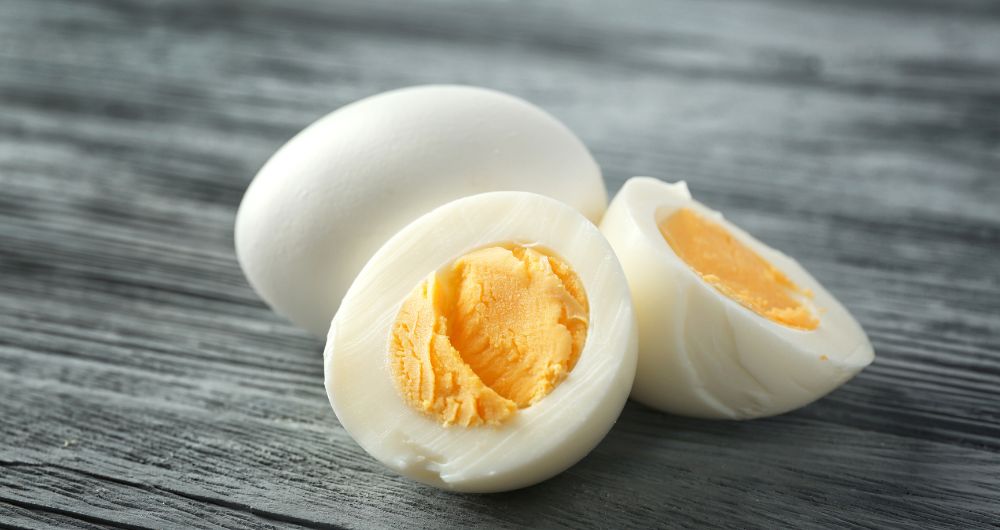
How Much Does an Egg Pack?
How Much Protein is in an Egg?
When it comes to clean eating, eggs are a nutritional powerhouse. Whether you're vegan, vegetarian, or a health enthusiast, knowing the protein content in eggs can help you make informed dietary choices. This blog post will break down egg protein content, explore their benefits, and compare them to other sources like protein powder.
The Protein Content of Eggs
A single large egg contains approximately 6 grams of protein. This makes eggs efficient and effective for meeting your daily protein needs. The protein in eggs is high-quality, meaning it contains all nine essential amino acids that our bodies can't produce independently. Additionally, the protein found in eggs is highly digestible, which enhances nutrient absorption and makes it an excellent option for those seeking to optimize their nutritional intake.
Why Protein Matters
Protein is essential for muscle repair, growth, and overall health. It plays a crucial role in various bodily functions, including the production of enzymes and hormones. Getting enough protein is crucial for those who engage in regular physical activity or are looking to build muscle. Eggs can be a convenient and affordable source of this vital nutrient, ensuring that your body has what it needs to function optimally. Furthermore, protein helps in maintaining a healthy immune system and can contribute to better skin and hair health.
Benefits of Egg Protein
High Biological Value
Egg protein is considered to have a high biological value, meaning it's easily absorbed and utilized by the body. This makes eggs an excellent choice for those looking to maximize their protein intake efficiently. The high biological value also ensures that the body can effectively use the protein from eggs for muscle synthesis and repair. Additionally, eggs contain other essential nutrients like vitamins B12, D, and E, choline, and selenium, all of which contribute to overall health and well-being.
Versatility in Diets
Eggs are incredibly versatile and can be incorporated into a variety of dishes, from breakfast omelets to salads and even desserts. They can be prepared in numerous ways, including boiling, scrambling, poaching, and baking, making it easy to include them in diverse dietary plans. They are suitable for vegetarians who consume animal products but not for vegans, who can opt for plant-based alternatives like tofu or tempeh. The versatility of eggs also extends to their ability to be combined with various ingredients, enhancing the flavor and nutritional profile of meals.
Affordable and Accessible
Unlike some protein sources that can be expensive, eggs are generally affordable and widely available, making them a practical choice for many people. They can be found in almost any grocery store and come in various forms, including fresh, pasteurized, and powdered, providing flexibility for different culinary uses and preferences. Moreover, eggs have a relatively long shelf life when stored properly, which adds to their convenience and practicality.
Comparing Egg Protein to Other Sources
Protein Powder
Protein powders are a popular supplement for those looking to boost their protein intake quickly and conveniently. While they offer a concentrated dose of protein, they lack the additional nutrients found in whole foods like eggs. Most protein powders also come with additives, sweeteners, and preservatives, which may not be ideal for those seeking a clean eating lifestyle. However, for people with busy schedules, protein powders can be a handy option. It's also worth noting that the quality of protein powders can vary widely, so it's important to choose products that align with your health and dietary goals.
Plant-Based Proteins
For vegans and those looking to reduce their intake of animal products, plant-based proteins like lentils, chickpeas, and soy are excellent alternatives. These sources provide not only protein but also fiber, vitamins, and minerals that are essential for overall health. While these sources are also rich in protein, they may require combining different foods to ensure a complete amino acid profile. For example, pairing beans with rice can create a complete protein source, making plant-based diets both nutritious and varied. Additionally, plant-based proteins often come with environmental benefits, as they typically have a lower carbon footprint compared to animal-based protein sources.
For busy people, Evr Fit Edge's Protein Powder is an excellent plant-based choice. It's convenient, easy to incorporate into your routine, and provides essential nutrients and protein to keep you energized and healthy. Made from high-quality, natural ingredients, it aids in muscle recovery and overall wellness. Whether you're rushing to a meeting, hitting the gym, or managing a packed day, Evr Fit Edge ensures you get the nutrition you need without compromising your health goals
